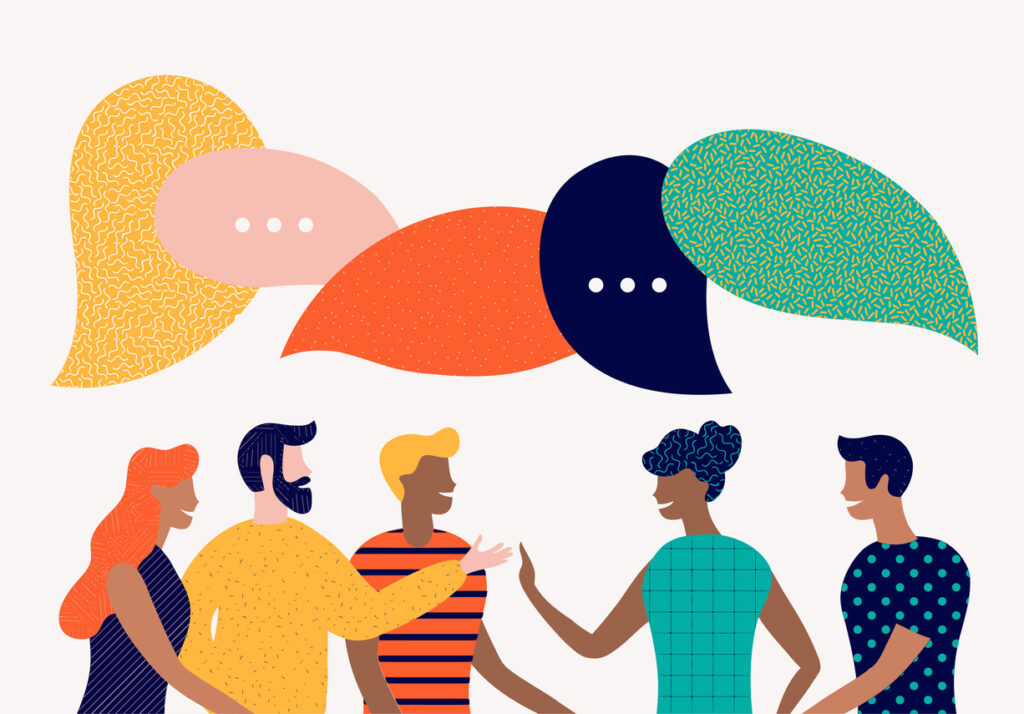We hear so much about belonging at work, but how can we help make our workplaces more accepting of our authentic selves?
I believe that a strategy of empathy can help. Empathy is the ability to understand the thoughts and feelings of another person.
We can change the perception of empathy and start to value what it brings by encouraging our workmates to share more of who they are.
A healthcare client I consulted with recently has adopted empathy as part of their guidelines for solving patient complaints. Staff are instructed always to acknowledge what the patient must be feeling before attempting to solve their problem.
Microsoft boss Satya Nadella says that ‘empathy makes you a better innovator’ because by putting yourself in your customer’s situation, you’re more likely to find the right solution for them.
So if it’s good enough for clients and customers, then surely we can also apply empathy to improving relationships with our colleagues and creating a culture of belonging?
Open communication
I’m a communication consultant and personally I feel that so many workplace challenges can be reduced, if not solved, by open communication.
In the case for increased empathy at work, companies can encourage staff to listen to and understand the thoughts and feelings of others. Just as important is ensuring that everyone has the ability to speak up, confidently knowing that their views will be respected.
The good news is that empathy is being adopted more and more as a solution to employee engagement and belonging.
After all, it’s hard to be empathetic if you don’t know what someone is feeling. If they’re afraid or unsure of how to articulate those feelings then we can’t make progress.
Early on in my career I worked as an IT consultant in the USA. It was my first full time job for a corporation, I was in a foreign country and as an introvert and a black woman, I was a clear minority.
When, early on in my tenure, my bosses felt I wasn’t speaking up enough during meetings, they didn’t ask me why and made no attempt to understand what I was feeling. Nor did they offer me any communication training. Instead, I was immediately put on probation. This was long before Susan Cain’s groundbreaking book, Quiet, the power of introverts in a world that can’t stop talking.
A little empathy goes a long way
Looking back, I believe that they thought that being quiet during meetings was an indication that I didn’t have the skills to do my job properly. Of course, now it’s widely acknowledged that introverts need a little more thinking time than their extroverted colleagues.
Back then, a bit of empathy and a few simple questions would have revealed my eagerness to do well, and coupled with some training might have gone a very long way to alleviate, or avoid altogether, the stress, embarrassment and fear that I experienced as result of the company’s actions. I discuss these work challenges in my TEDx talk.
Is empathy too much hard work?
Part of the wider problem with adopting empathy as a solution to engagement and belonging, is that people think it’s just too much hard work to empathise with others. A 2019 study published by Pennsylvania State University and the University of Toronto revealed that people feared the hard work involved in exercising empathy.
Could this be why we often shut down or seem intolerant of the differences between ourselves and those around us? Is it because it’s seen as too much hard work and another problem we need to solve on top of our regular workload?
The need for guts, humility and courage
We can change the perception of empathy and start to value what it brings by encouraging our workmates to share more of who they are. Also – and importantly – we can do it by simply listening to and acknowledging their opinions and viewpoints, rather than trying to solve any perceived problems.
This can take guts, humility and courage. For many of us it’s much harder to listen than to speak – but the feelings of understanding and connection that result are well worth it.
The listener should simply aim to be present, to be open and to let the speaker express themselves fully. If we could reward points for simply listening, that would be perfect.
Don’t try to minimise someone’s situation
What can get in the way is when we try to argue with how someone feels or try to minimise their situation by saying things like ‘well at least X didn’t happen to you’. Or even worse, we don’t listen at all and try to change the subject or walk away at the first opportunity.
The good news is that empathy is being adopted more and more as a solution to employee engagement and belonging.
I recently worked with a global consulting firm that wanted its managers to be more empathetic. I shared some roleplays and a simple framework with them to help them listen fully and acknowledge the feelings of their colleagues.
At the end of the session, many of the managers admitted they hadn’t realised how very important empathy is in their day-to-day relationships, but that they were excited about using this important skill in the future to help foster a sense of belonging within their teams and improve their relationships with clients and customers.
[cm_form form_id=’cm_65a14c3f5da64′]
Next steps
Next time someone seems marginalised or you sense they feel they don’t belong, ask them about it and simply let them speak. Try not to launch in immediately with an attempt to solve the problem. Acknowledge their feelings out loud. You’d be amazed at the transformation these simple actions can bring about. You don’t have to agree, just listen.
Read more fiction. This helps to strengthen our empathy muscles. Watch films on TV and try to name what the characters must be feeling.
When we stop to consider the role that empathy plays in our day-to-day lives and actively cultivate it in ourselves, we can all begin to have better and more successful working relationships.
Interested in this topic? Read Three ways to develop a sense of belonging in the workplace.






